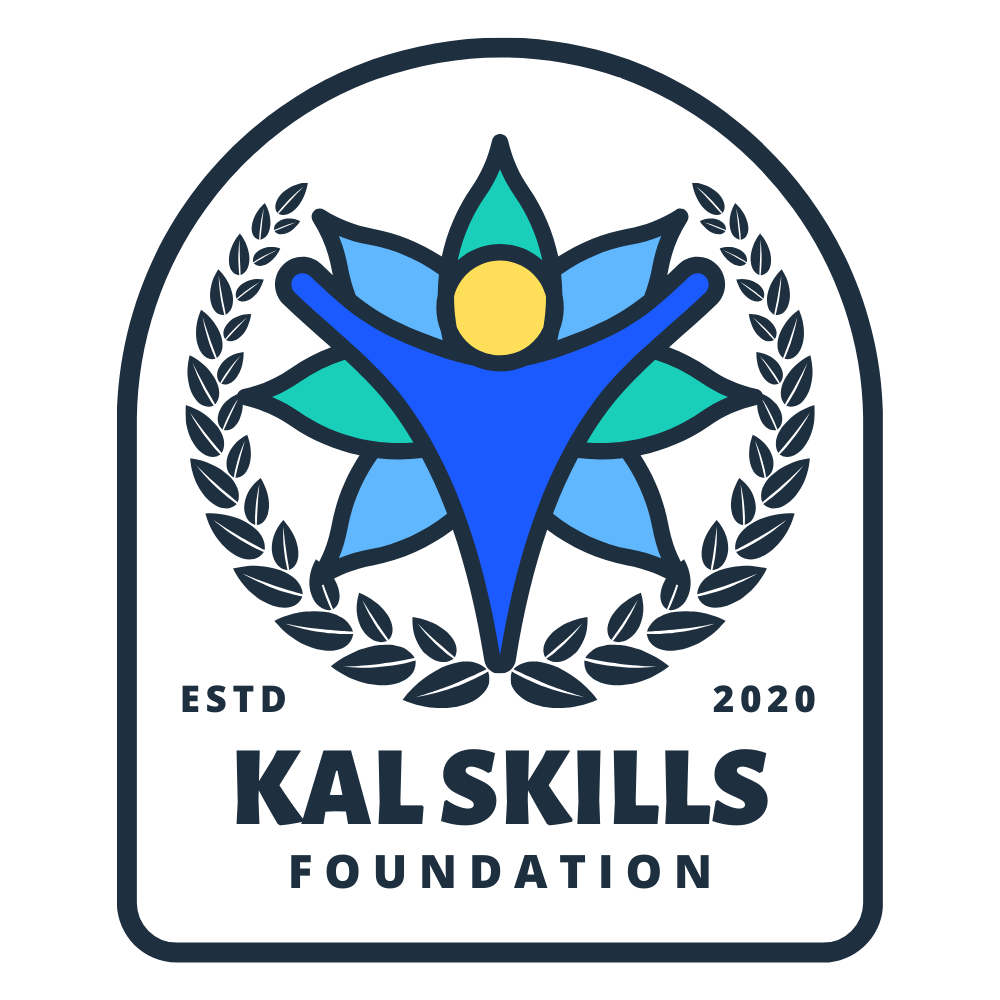Did you know over 82% of hiring managers look at professional certifications when making decisions1? These credentials are key for career growth, skill development, and getting recognized in the job market. They help you move up in your job or switch to a new field. Professional certifications build important skills, increase your credibility, and meet industry standards1.
This article will help you understand professional certifications and how to use them to boost your career. You’ll learn about specialized training in areas like IT, finance, healthcare, and project management. Certifications make you more skilled and valuable in your field1.
Key Takeaways:
- Professional certifications show your expertise and dedication to excellence in your field.
- Certifications can increase your credibility, open new doors, and lead to better-paying jobs.
- Getting certifications gives you the knowledge and skills to keep up with industry changes and stay competitive.
- Certifications can help you build relationships, leading to new job chances, collaborations, and mentorship.
- Certifications can be a stepping stone to career advancement, making you more appealing for job openings, promotions, and leadership roles.
The Importance of Professional Certifications
Professional certifications are key for career growth. They boost your skills, knowledge, and job market edge2. Getting certified sets you apart, showing your dedication to learning and doing great work2. Plus, certified professionals often earn more, as clients value their specialized skills2.
Enhancing Skills and Expertise
Education and certification programs boost your industry standing2. They prove your specialized knowledge, making you more credible2. These programs help you spot and fix work issues, growing your skills and career2.
Staying Competitive in the Job Market
In today’s job market, certifications are a big plus3. Studies show certified HR pros get promoted faster than non-certified ones3. IT pros with certifications see a 20% to 25% salary boost3.
In healthcare, certified workers are 30% more likely to get bonuses3. Engineering and finance value certifications too, with 80% of engineers and 40% of finance pros benefiting34.
“Professional certifications contribute to expanding knowledge and skills, allowing individuals to identify and address inefficiencies in their work.”2
Certifications are crucial. They improve your skills and show your commitment to your field4. With certifications, you stand out in the job market and open doors to new career heights4.
Types of Professional Certifications
The world of professional certifications is vast and diverse. It offers many options to boost your career, skills, and industry standing. You can choose from industry-specific certifications that prove your expertise in certain areas. Or, you can go for skill-based certifications that show your ability in skills that many industries value5.
Industry-Specific Certifications
Industry-specific certifications are made for specific fields. They meet industry standards and are highly sought after by employers. These certifications show you know your stuff well in areas like aviation, construction, healthcare, finance, and more6.
In finance and accountancy, for example, you can get certifications like CPA, CA, ACA, FCA, ACMA, FCMA, ACCA, FCCA, AFA, FFA, AAIA, and FAIA. These are given by respected institutions5.
Skill-Based Certifications
Skill-based certifications, however, focus on skills that are useful in many industries. They show you’re good at things like project management, data analysis, leadership, and more6.
Thinking about the right certifications for your career goals is key. It can help you move up in your career and stay ahead in today’s fast-changing job market5.
| Industry-Specific Certifications | Skill-Based Certifications |
|---|---|
| Validate expertise in a specialized domain | Demonstrate proficiency in transferable skills |
| Align with industry standards and best practices | Applicable across various industries |
| Highly valued by employers in specific fields | Enhance versatility and adaptability |
| Examples: CPA, CA, CCNA, CISSP | Examples: Project Management, Data Analysis, Leadership |
Professional Certifications: A Pathway to Career Advancement
Getting professional certifications can boost your career. They show you’re serious about growing professionally. They also tell employers you’re ready for bigger roles7. With certifications, you become more valuable, earn more, and find new chances to lead in your field.
Companies value certifications and look for them8. The Bureau of Labor Statistics says over 43 million people have certifications. Those with them can make up to 30% more than others in the same job8. In fields like healthcare, with 8.5 million jobs and 6.5 million job seekers, certifications are especially helpful8.
Certifications link theory from school to real-world skills, helping you move up in your career7. Top universities offer certificates that employers and leaders value. The University of Chicago Professional Education (UCPE) is an example.
Staying up-to-date with skills is key in today’s fast-changing job market7. Most employees want to stay with a company that invests in their growth7. Getting certifications shows you’re committed to keeping up with trends and aiming for long-term success.
In summary, certifications are a strong way to advance your career. They give you the skills, recognition, and chances to excel in your field. Whether you want to improve your skills, make more money, or find new leadership roles, getting certifications is a smart move for your career78.
Building a Skill-Based Resume
Making a skill-based resume with your certifications and achievements can really help you stand out9. It shows what you know and can do, making you more attractive to employers9. It also shows you’re serious about learning and keeping up with new trends.
Highlighting Certifications and Accomplishments
It’s key to show off your certifications and big wins on your resume9. More companies are looking for skills over degrees for certain jobs10. By focusing on these, you can show you’re the right fit for the job.
A good skill-based resume starts with a brief summary. It should list your main skills, certifications, and big achievements910. This makes it easy for recruiters to see what you bring to the table.
After Covid-19, employers want workers who can adapt fast10. By pointing out your certifications and achievements, you show you’re ready to learn and grow.
| Resume Components | Description |
|---|---|
| Contact Information | Include your name, address, phone number, and professional email address. |
| Summary Statement | Concisely highlight your core competencies, industry-relevant certifications, and key achievements. |
| Skills and Competencies | List your technical, interpersonal, and problem-solving skills, emphasizing those most relevant to the job. |
| Professional Certifications | Prominently display your industry-recognized certifications and licenses. |
| Work History | Focus on your recent work experience, emphasizing your achievements and the skills you developed. |
| Education | List your academic credentials, including any relevant coursework or projects. |
By focusing on your skills and achievements in your resume, you can really make yourself stand out910. It shows you’re serious about learning and growing.
Continuous Learning and Development
Staying updated in today’s fast-changing job market is key. Professional certifications help you keep up, learn new skills, and meet industry needs11. By always looking to grow your knowledge, you become more valuable to employers and boost your career.
The world of learning and development is huge and always changing. There are many ways to grow, from certifications to training programs12. These steps show you’re serious about your career and make you more credible in your field.
- The Learning & Development Certificate Program by AIHR has flexible prices, starting at $975 for one program to $2,600 for 12 for teams12.
- The Certified Learning Strategist (CLS) certification by Brandon Hall Group costs $995 and needs 40 hours of study11.
- The Certified Professional in Training Management (CPTM) program by The Training Industry is $3,695 for six weeks12.
- The Certificate in Designing Online Learning (CDOL) by LPI is a 100% online, 40-hour program12.
These are just a few examples of what’s out there for learning and development. By choosing the right certifications, you can get the latest skills, deepen your knowledge, and move up in your career13.
To succeed today, you must commit to continuous learning and growth. With the right certifications, you can create a rewarding and dynamic career in the changing world of learning and development11.
“The more I learn, the more I realize how much I don’t know.” – Albert Einstein
Networking and Industry Recognition
Getting professional certifications can lead to great networking chances and recognition in your field. Many certifications link up with professional groups, giving you access to communities, events, and leadership roles. Being part of these networks helps you keep up with new trends, make meaningful connections, and become a respected expert in your field.
Professional Associations and Organizations
Joining groups related to your field is a smart move for networking and getting recognized. These groups offer certifications, conferences, and resources to improve your skills and meet peers. Examples include the International Association of Privacy Professionals (IAPP), the Project Management Institute (PMI), and the Institute of Electrical and Electronics Engineers (IEEE).
- Go to industry events and conferences to meet other professionals and learn about new trends and practices.
- Take on leadership roles in professional groups to show your expertise and dedication to the field.
- Write for industry publications or blogs to share your knowledge and become a thought leader.
By getting involved with professional groups, you can build a strong network, get recognized, and move up in your career14.
| Certification Type | Percentage of U.S. Employers Considering it “Necessary” |
|---|---|
| Security, privacy, and compliance | 70% |
| Network and systems administration | 68% |
| Cloud architecture and operations | 67% |
| Software and application development | 65% |
| Technology process automation | 61% |
| Data science and database administration | 59% |
| DevOps | 57% |
| Business intelligence, analysis, and reporting | 57% |
| Web and mobile development | 56% |
| Project and program management | 55% |
| Help desk and technical support | 41% |
The data shows how important different tech certifications are, with security, privacy, and compliance being the most wanted by U.S. employers14.

Getting involved with professional groups can lead to recognition and career growth. By participating actively, you show your skills, build a strong network, and stay updated on industry trends and best practices.
The Value of Leadership Certifications
Getting leadership certifications can change your career path. They show you can lead and inspire teams. They also boost your strategic thinking and decision-making skills15.
By investing in leadership development, you become a key asset to your company. You’ll stand out in job searches and move up to senior roles.
Enhancing Managerial and Strategic Skills
Leadership certifications help improve your management and strategy skills. Courses from top schools like Harvard Business School Online and Brown University Leadership Certification Program are available15. They cost between $1,750 and $3,500.
These programs require you to finish several courses. For example, the MIT Sloan School of Management executive program needs at least four courses15.
Certifications from Cornell University and the Kellogg School of Management are designed for future leaders15. They focus on strategic skills for senior roles.
“Obtaining leadership certifications demonstrates your commitment to professional development and your ability to thrive in complex, high-stakes environments.”
Leadership certifications are key for career growth. They give you the skills to excel and open new opportunities. They make you stand out in the job market and prepare you for success.
In the U.S., over 1 million certificates are given each year, more than master’s degrees in 2021–2216. Master’s degrees in business, education, and health professions are most common16. Also, half of the U.S. workforce are skilled through alternative routes, like certifications16.
| Certification Program | Cost |
|---|---|
| Harvard Business School Online | $1,750 – $2,250 per course15 |
| Brown University Leadership Certification Program | ~$3,50015 |
| MIT Sloan School of Management Executive Program | Requires completion of at least four courses15 |
| Wharton School of the University of Pennsylvania | $3,600 for the complete program, $995 per individual course15 |
| Cornell University Leadership Program | $3,69915 |
| Kellogg School of Management | Program geared towards future C-suite leaders15 |
The MentorCruise platform offers many leadership certifications and mentorship17. It has over 3,000 mentors for guidance, with prices from $90 to $280 a month17. This platform is great for your career growth151617.
Choosing the Right Certification Program
Choosing the right certification program is key for professional growth. Certification programs are gaining prominence in the job market for skill enhancement and career advancement18. The right certification can greatly impact your career path18. It’s important to check the credibility and accreditation of the issuing organization.
Look for certification programs that are well-recognized in your industry18. Top-tier certification programs are often viewed as more valuable by employers, as they are aligned with industry standards and offer a comprehensive learning path combining theoretical knowledge and practical skills18. The reputation of the institution issuing the certification is also crucial for its recognition and value in the professional world18.
Evaluating Credibility and Accreditation
Employers often view certified individuals as more qualified and competent, which can lead to better job prospects and advancement opportunities19. Holding relevant certifications can boost credibility and reputation among peers and potential employers19. Many certification courses are updated regularly to reflect the latest advancements and best practices in their respective fields19.
When evaluating a certification program, consider factors such as relevance to your career goals, accreditation, course content and structure, instructor expertise, and cost/accessibility19. Certification courses also offer opportunities to connect with other professionals in the field, enhancing networking possibilities19.
The typical length of a certificate program ranges from three to seven months, emphasizing practicality and job-ready skills20. Certificate programs are generally less expensive than degrees, costing between $50 per month to $6,00020. Completion of a certificate program has shown to lower the unemployment rate and increase earning potential20.
Online certificate programs offer flexibility for working professionals to learn at their own pace20. Communication with peers and instructors is a common networking opportunity within certificate programs20.

By carefully evaluating the credibility and accreditation of a certification program, you can ensure that your investment in professional development will pay off in the long run181920. Choosing the right certification program is essential for long-term professional development given today’s dynamic business landscape18. The right certification can enhance your skills, boost your credibility, open new opportunities, and prepare you for future challenges181920.
Planning and Budgeting for Certifications
Getting professional certifications can boost your career, but you need to plan and budget well21. Just like companies do, you should figure out the costs of the certification program. This includes tuition, exam fees, and study materials.
There are ways to make getting certifications less expensive. Look for employer training programs, tuition help, or educational grants22. For example, the Certified Business Economist (CBE) needs 150 hours to finish. The CSCA by the Institute of Management Accountants (IMA) requires being a CMA holder and having two years of experience in management accounting or finance22. Using these resources can make your investment worth it and help you reach your career and financial goals.
Don’t forget to think about the time needed for certifications too22. The FMVA certification from the Corporate Finance Institute (CFI) takes about 120 hours. The CMA certification by the Institute of Management Accountants (IMA) requires 300-400 hours of study22. Knowing the time and money needed for each certification helps you plan better and make smart choices for your career.
By carefully planning and budgeting for certifications, you open doors to career growth and recognition. Invest in your professional development. Let your certifications be the keys to a more fulfilling and rewarding career2122.
Maintaining and Renewing Certifications
Keeping your professional certifications up to date is key to staying ahead in your field. It shows you’re committed to learning and growing23. Many employers value certifications and are willing to pay more for them23.
Each certification body has its own rules for keeping your credentials current. For instance, Scrum Alliance has different renewal needs for each level of certification23. Professional certifications need 40 Scrum Educational Units (SEUs) and cost $250 to renew. Advanced certifications require 30 SEUs and cost $17523.
Foundational certifications need 20 SEUs and cost $100 to renew. The Certified Agile Leader certification requires 10 SEUs and costs $50 to renew23.
The Association of Proposal Management Professionals (APMP) also has specific rules for keeping certifications current24. The Foundation Level needs 20 CEUs/CPDs, while higher levels need 40 CEUs/CPDs24. Micro-certifications, however, don’t require any CEUs/CPDs for renewal24.
It’s crucial to know the renewal rules for your certifications. Many organizations offer help and resources to make the process easier23. By managing your certifications well, you show your dedication to your field and keep your skills sharp23.

Renewing your certifications can also have extra perks. It can automatically renew all your other certifications, even if they’re not active23. This makes it easier to keep multiple certifications current at once23.
Even if your certifications have expired, you can still renew them. However, you might need to pay extra or meet certain conditions23. By focusing on certification renewal, you keep your credentials valid and boost your career prospects23.
Leveraging Certifications for Career Growth
Now that you have your professional certifications, it’s time to use them to grow your career. Show off your certifications on your resume, LinkedIn, and other professional materials. This highlights your skills and dedication to your field25.
Recruiters look for candidates with certifications because they meet industry standards and show specific skills25. By looking for jobs that match your certified skills, you become a valuable asset to employers.
Certifications can also help when asking for promotions, job offers, or raises25. Certified professionals stand out in job searches, showing they are proactive in their careers25. Employers see the value in certifications, as they show you’re up-to-date in your industry25.
Getting certifications involves research, understanding what’s needed, and a financial investment26. But the rewards are worth it, including learning, career growth, salary increases, and building your personal brand25.
| Certification Area | Potential Benefits |
|---|---|
| Digital Marketing | Demonstrate expertise in the latest digital marketing strategies and technologies. |
| Sales Management | Enhance leadership and strategic skills for managing sales teams and driving revenue growth. |
| Marketing Management | Develop advanced marketing planning, execution, and evaluation capabilities. |
| Professional Sales | Hone sales techniques, customer relationship management, and negotiation skills. |
| Professional Marketing | Gain a comprehensive understanding of marketing principles, strategies, and best practices. |
| Specialized Certifications | Acquire expertise in niche areas, such as social media marketing, content marketing, or email marketing. |
25 Sales and marketing certifications are key for career growth in competitive markets27. The Global Knowledge IT Skills and Salary Report shows certified IT pros earn more27. A survey by the HR Certification Institute found 87% of employers value certifications in hiring.
26 Studies show certified professionals earn more than non-certified ones26. Top certifications include SHRM and HCI for HR, ASAE for Association Management, PMP for Project Management, and CompTIA A+, CISSP, and AWS Certified Solutions Architect for IT.
“Certifications not only enhance credibility but also highlight dedication to staying current in the ever-evolving sales and marketing landscape.”25
By using your certifications, you can stand out in the job market, gain client trust, and show your commitment to learning and growth. Let your certifications be the key to your career success.
Balancing Skills and Certifications
Successful professionals know the value of balancing skills and certifications. Certifications show your expertise and dedication to your field. But, mastering in-demand skills is also key for moving up in your career28.
By combining certifications with practical skills, you become a valuable asset to employers28. This approach makes you stand out in the job market28.
A Complementary Approach
28 Certified learning gives you a solid base for career growth28. At ICAgile, courses like Agile Fundamentals and Business Agility Foundations are great for beginners28. Specialized courses, like Agile Team Facilitation for Scrum Masters, dive deep into advanced topics28.
Combining certified learning with real-world experience sharpens your skills and problem-solving28. Employers look for both theoretical knowledge and practical skills28.
29 Getting certified can boost your salary by 5-10%29. Those with certifications are 15-20% more likely to get hired29. Over 70% of employers see certifications as important in hiring29.
60-70% of professionals feel more confident after getting certified29. Early career professionals see a 20-30% increase in job offers with relevant experience29. 80% believe hands-on experience is key for career growth29.
Volunteering can increase networking by 10-15% for early career professionals29. Workshops and seminars can boost skill development by 15-20%29. 90% of successful professionals thank mentors for their career boost29.
Effective leaders can improve learning outcomes by 25-30% through mentorship29. Setting SMART goals can help balance certifications and experience by 10-15%29.
By adopting this complementary approach, you can use certifications and skills effectively. This balanced strategy can lead to a rewarding and fulfilling career.

“The key to success lies in finding the perfect harmony between theoretical knowledge and practical application. It’s not just about what you know, but how you can apply it to drive tangible results.”
Emerging Trends in Professional Development
The world of professional development is always changing. New trends and innovations keep popping up to meet job market needs. It’s key to keep up with the latest in professional certifications30.
Digital and technology skills are now more important than ever. With digital transformation changing industries, employers want people with skills in data analysis, cybersecurity, and cloud computing30. Microcredentials and nanodegrees are also on the rise. They offer flexible learning for those with busy schedules30.
Soft skills and leadership are also getting more attention. Employers value people who can communicate well, solve problems, and make decisions. So, professional development programs focus more on these skills30.
To stay ahead in the job market, it’s important to know about these trends. By keeping up with industry demands, you can set yourself up for success and growth30.
| Emerging Trend | Impact on Professional Development |
|---|---|
| Digital and Technology-Related Credentials | Increased focus on skills in areas like data analysis, cybersecurity, and cloud computing30 |
| Microcredentials and Nanodegrees | Flexible and targeted learning opportunities to meet the needs of busy professionals30 |
| Soft Skills and Leadership Development | Growing emphasis on communication, problem-solving, and decision-making abilities30 |
By staying informed and adaptable, you can make sure your professional development matches industry needs. This will help you succeed in the long run30.
Conclusion
Professional certifications are key for career growth, skill improvement, and industry respect. They give you an edge in the job market, showing your skills and knowledge31. These programs cover the basics and advanced topics, offering hands-on learning and varied assessments31.
Getting certified opens up new chances, boosts your skills, and makes you a valuable asset. Certified people often get leadership roles, helping their careers grow31. Industry certifications are also on the rise for career moves32.
It’s crucial to keep up with new trends in professional growth. This includes digital badges and micro-credentials31. Also, remember to keep your certifications current through ongoing learning32. By using professional certifications wisely, you can move your career forward and reach your goals. Keep learning and growing to succeed in the changing job world.
FAQ
What are the benefits of pursuing professional certifications?
What are the different types of professional certifications?
How can professional certifications help with career advancement?
How can I effectively highlight my professional certifications on my resume?
What are the key considerations when choosing a professional certification program?
How can I plan and budget for professional certifications?
How do I maintain and renew my professional certifications?
How can I effectively leverage my professional certifications for career growth?
What emerging trends should I be aware of in the world of professional development?
Source Links
- Unlocking Career Advancement: The Power of Professional Certifications. – https://www.linkedin.com/pulse/unlocking-career-advancement-power-professional-certifications-s94nc
- 5 Ways Professional Certifications Add Value – https://www.mbopartners.com/blog/how-manage-small-business/five-benefits-of-professional-certification/
- The Power of Professional Credentials: How Certification Can Advance Your Career – Eat Your Career – https://eatyourcareer.com/2024/08/the-power-of-professional-credentials-how-certification-can-advance-your-career/
- Trending Topics in Treasury and Finance – https://www.afponline.org/training-resources/resources/articles/Details/are-certified-professionals-more-likely-to-get-hired
- Professional certification – https://en.wikipedia.org/wiki/Professional_certification
- What Is a Professional Certification? | BestColleges – https://www.bestcolleges.com/blog/what-is-a-professional-certification/
- The Rise of Professional Certificates – https://professional.uchicago.edu/stories/rise-professional-certificates
- The Role of Professional Certifications in Career Advancement – https://pressbooks.nebraska.edu/edublog/chapter/the-role-of-professional-certifications-in-career-advancement/
- What Is a Skills-Based Resume and When Should You Use One? | Placement Learn – https://www.placement.com/learn/what-is-a-skills-based-resume
- How to Write a Resume for Skills-Based Hiring – https://www.resumegiants.com/blog/resume-skills-based-hiring/
- 8 Learning and Development Certifications Worth Looking Into – https://blog.cathy-moore.com/learning-and-development-certifications/
- 12 Best Learning and Development Certification Programs in 2024 – https://www.ispringsolutions.com/blog/learning-and-development-certification
- Best Learning & Development Certifications In 2024 – https://www.linkedin.com/pulse/best-learning-development-certifications-2024-gsd-council-iapuf
- The 29 Most Valuable IT Certifications – https://www.roberthalf.com/us/en/insights/career-development/which-it-certifications-are-most-valuable
- Top 10 Leadership Certifications to Elevate Your Career – Blue Signal Search – https://bluesignal.com/2024/05/29/top-10-leadership-certifications-to-elevate-your-career/
- The Value of a Certificate – https://voices.berkeley.edu/education/value-of-certificate
- Top 8 Leadership Certifications – MentorCruise – https://mentorcruise.com/certifications/leadership/
- Transforming Your Future: A Comprehensive Guide to Choosing the Right Certification Program – https://news.ibqmi.org/transforming-your-future-a-comprehensive-guide-to-choosing-the-right-certification-program
- Navigating the World of Certification Courses: A Guide to Enhancing Your Skills and Career – https://www.linkedin.com/pulse/navigating-world-certification-courses-guide-your-skills-upadhyay-xx5kc
- What Are Certificate Programs? A 2024 Guide – https://www.coursera.org/articles/certificate-programs
- Best FP&A Certifications: Further Your Career in Financial Planning and Analysis – https://corporatefinanceinstitute.com/resources/career/certifications-for-fpa/
- Top Certifications for FP&A Analysts in 2024 (Ranked) – https://www.tealhq.com/certifications/fp-a-analyst
- Certification Renewal for Scrum Alliance CSM, CSPO, & CSD – https://www.scrumalliance.org/get-certified/renewing-certifications
- Maintaining Certification (CEUs/CPDs) – https://www.apmp.org/certification/maintaining-certification-ceus/
- Leveraging Professional Certification to Elevate Your Career in Sales & Marketing – https://smei.org/blog/leveraging-professional-certification-to-elevate-your-career-in-sales-and-marketing/
- Exploring the Benefits of Certifications for Career Advancement | Talent Front – https://talentfront.net/exploring-the-benefits-of-certifications-for-career-advancement/
- The Impact of Certification Exams on Career Advancement and Professional Development – https://www.linkedin.com/pulse/impact-certification-exams-career-advancement-professional-0l0ef
- Navigating Career Growth: Balancing Certified Learning and Real-World Experience – https://www.icagile.com/resources/navigating-career-growth-balancing-certified-learning-and-real-world-experience
- The Balance Between Certification and Experience in Early Career Development – https://www.linkedin.com/pulse/balance-between-certification-experience-early-career-wadsworth-frsue
- Four Trends in Professional Development and Continuing Education – The EvoLLLution – https://evolllution.com/programming/teaching-and-learning/four-trends-in-professional-development-and-continuing-education-0
- The Significance of Certification in Professional Skills Development – https://www.linkedin.com/pulse/significance-certification-professional-skills-gary-homes-taaie
- The Pros and Cons of Industry Certifications – https://medium.com/@enrichmycareer/the-pros-and-cons-of-industry-certifications-2dd54175ec34





